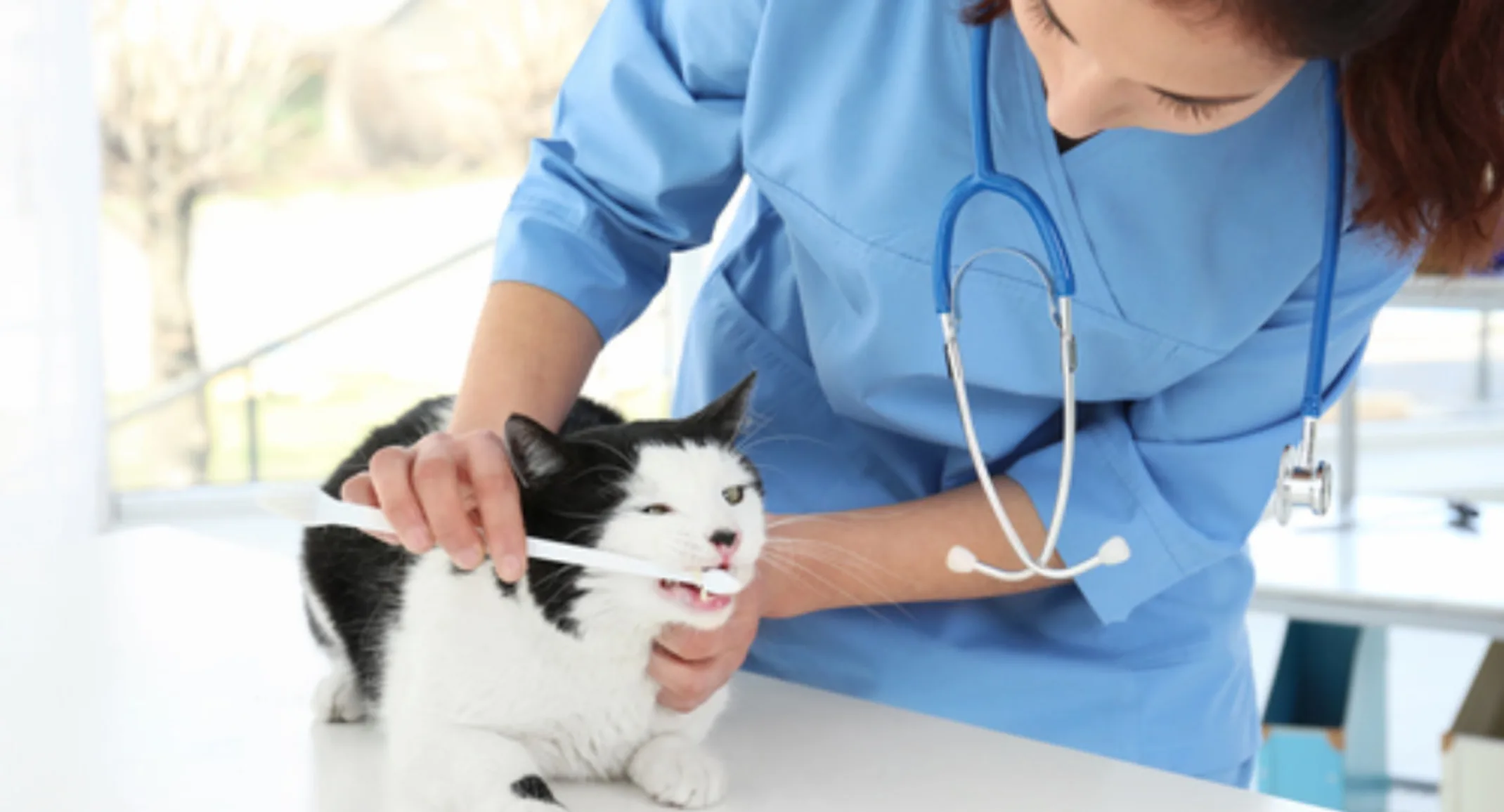Pawsitively Purrfect Smiles: Unleashing the Secret to Pet Dental Health
For Pet Owners

Why Dental Health is Crucial for Your Pet’s Overall Well-being
You may not realize that your pet’s dental health plays a pivotal role in their overall well-being- but dental diseases are among the most common health issues in pets, leading to significant discomfort and serious medical conditions if left untreated.
Dental disease begins with plaque buildup, which hardens into tartar and can cause gum irritation and infection. Over time, this can progress to periodontal disease, affecting the gums and bones supporting the teeth. Without treatment, it can lead to tooth loss and bacteria entering the bloodstream, impacting vital organs like the heart, kidneys, and liver.
For a deeper understanding of why dental health matters, visit Healthy Mouth, Healthy Pet: Why Dental Care Matters.
Medical Insight: The Progression of Dental Disease
Dental disease in pets progresses through several stages:
Plaque Formation – Food particles and bacteria accumulate on teeth.
Tartar Build-up – If plaque isn’t removed, it hardens into tartar within days.
Gum Inflammation (Gingivitis) – The gums become red and swollen due to bacterial invasion.
Periodontal Disease – Bacteria penetrate deeper, damaging gum tissue and bone.
Tooth Loss & Systemic Infection – The disease spreads, leading to pain and potential organ damage.
For more details on pet dental care, visit Pet Dental Care – AVMA.
The Hidden Dangers of Neglected Pet Dental Health
Periodontal disease isn’t just about bad breath. It’s a progressive infection that destroys bone and tissue, leading to severe pain. Oral bacteria can enter the bloodstream, potentially damaging the heart, kidneys, and liver.
When Dental Disease Becomes an Emergency
Seek immediate veterinary care if your pet exhibits:
Sudden refusal to eat
Visible swelling of the jaw or face
Excessive drooling with blood
Difficulty breathing or swallowing
Identifying Signs of Dental Problems in Pets
Early Warning Signs of Dental Disease
Recognizing symptoms early can prevent severe health complications. Common signs of dental disease in pets include:
Bad breath
Loose or missing teeth
Drooling or excessive pawing at the mouth
Red, swollen, or bleeding gums
Difficulty eating or chewing
If you notice any of these signs, schedule a visit to Palm City Animal Medical Center for a dental check-up. Learn more at Your Pet’s Dental Care.
Diagnosis and Treatment
Veterinarians perform a comprehensive oral examination, often under sedation, to assess dental health. Dental X-rays help evaluate hidden issues like bone loss, root infections, or fractures. Treatment may include:
Professional dental cleaning and scaling to remove tartar and plaque.
Antibiotics for infections.
Tooth extractions if necessary.
The Impact of Dental Diseases on Your Pet’s Lifestyle
From Discomfort to Severe Pain: The Progression of Untreated Dental Issues
Untreated dental issues severely impact a pet’s quality of life. Pain from dental disease can cause:
Difficulty eating, leading to weight loss and malnutrition.
Behavioral changes, such as irritability or lethargy.
Reduced activity levels, reluctance to play, and social withdrawal.
Preventative Measures and Treatment Options
Preventative Dental Care Tips for Pet Owners
A proactive approach is the best way to protect your pet’s oral health. Follow these tips:
Brush your pet’s teeth regularly using pet-safe toothpaste.
Provide dental chews and toys to help reduce plaque buildup. Check out the Veterinary Oral Health Council (VOHC) for recommendations.
Schedule annual veterinary dental cleanings.
Home Care Routine
Introduce tooth brushing gradually – Start by touching your pet’s gums before using a toothbrush.
Use dental diets and water additives – These help prevent plaque and tartar buildup
Monitor for early signs of dental disease – Routine at-home checks can catch problems before they worsen.
Advanced Dental Treatments for Pets
At Palm City Animal Medical Center, we provide comprehensive dental care, including:
Professional dental cleanings
Tooth extractions and oral surgery
Advanced pain management techniques
Our modern equipment and minimally invasive techniques ensure the best care for your pet’s comfort and safety.
FAQs on Pet Dental Care
How Often Should My Pet Have a Dental Exam?
Veterinarians recommend annual dental check-ups. Some pets with dental disease may require more frequent cleanings.
Can Dental Disease Be Reversed?
Gingivitis can be treated, but advanced periodontal disease may cause irreversible damage. Early intervention is key.
What’s the Best Way to Brush My Pet’s Teeth?
Use a pet-safe toothbrush and toothpaste. Begin by gently massaging the gums, then introduce brushing in short, positive sessions.
Maintaining your pet’s dental health is essential for a long, healthy life. Schedule an appointment today at Palm City Animal Medical Center and ensure your pet’s oral health remains in top condition!
